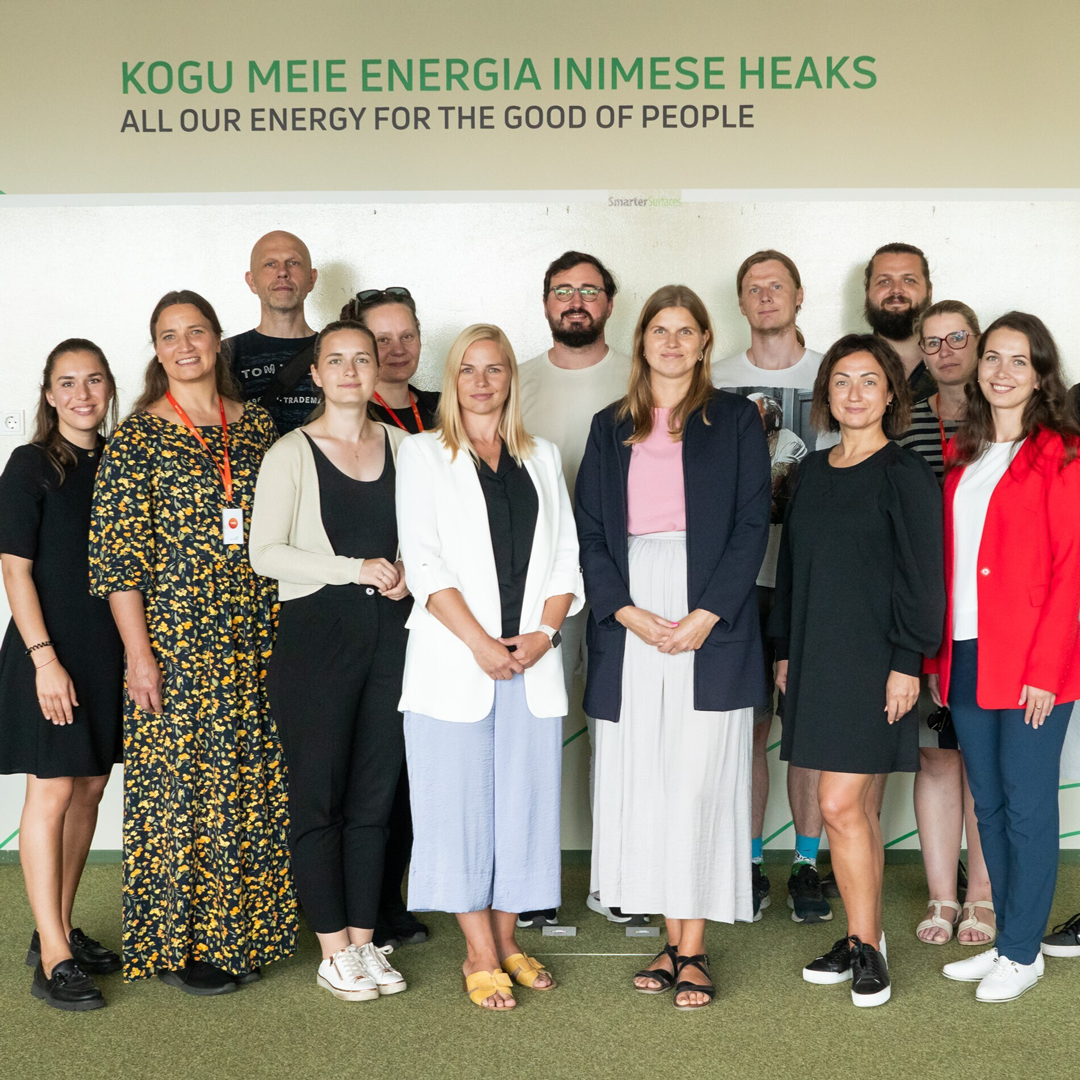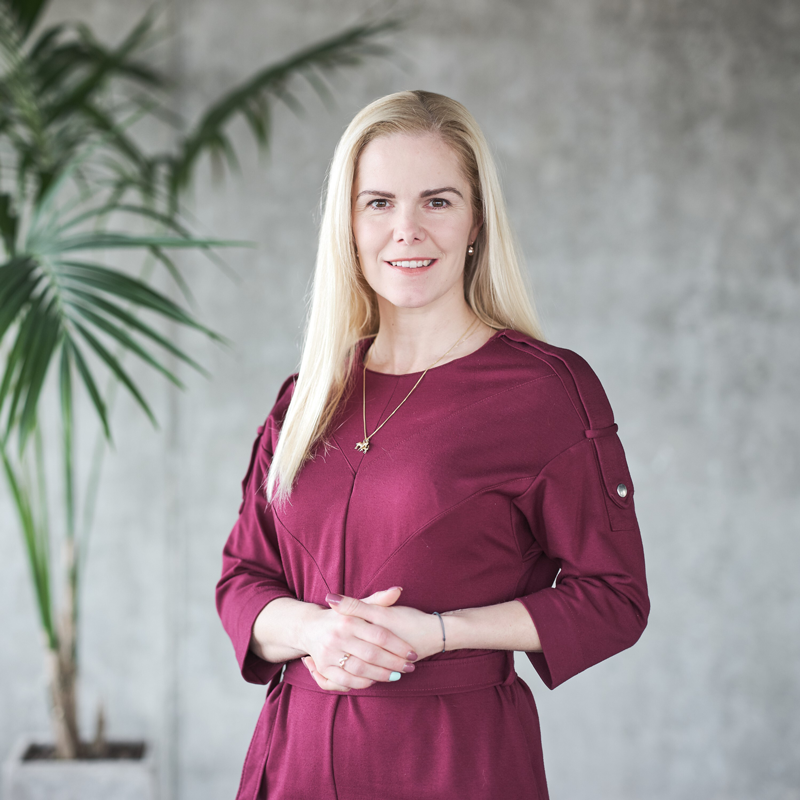
Let’s get to know each other: who are the fierce physics teachers of the ‘Lae End’ programme?
18. october 2023The world as we know it would not exist without physics. LHV is one of six companies that helped develop the ‘Lae End’ programme to support physics education and ensure the next generation of physics teachers and engineers in Estonia. The programme, which has recently entered its second season, was last week awarded the Friend of Education 2023 award. We spoke to two teachers to find out how the lively programme has gone so far.
Questions were answered by Merit Eier and Aune Nigol. Merit is a chemistry, physics, and science teacher at Vändra Gymnasium and Aune teaches physics, mathematics, natural science, and medical physics at Tallinn English College.
Merit and Aune, you have been in the field of teaching for ten and eight years, respectively. In your opinion, what makes teaching special?
Merit: There are several reasons for this. Firstly, as a teacher, you never get bored – every day offers challenges and different emotions. Secondly, as a teacher myself, I am a lifelong learner, and learning and developing with my students. And most importantly, as a teacher myself, I am special, because in my eyes, teachers are the ones who create the Estonia of tomorrow.
Aune: Teaching is the way you develop and learn the most and the fastest – by teaching, you gain both new professional knowledge and new skills. It is also a very emotionally rewarding job, for example, by allowing you to interact with different people. It is a job that can make the world a better place – a contribution to society and to the future.
How did you become a teacher?
Merit: At secondary school, I thought about studying chemistry. My cousin Rauno, who was the same age as me, wrote an opinion piece in a newspaper at the time about becoming a teacher, and then the idea came to me – why not become a teacher? My chemistry teacher, Tiina Tõnismann, also encouraged me to become her successor. So far, I have not regretted the decision. I had initially planned to study chemistry and geography, but the lecturer of introductory physics, Henn Voolaid, was so funny and managed to make physics so understandable and logical that I decided to take physics instead. I remember thinking at the time that I would like to be just such a teacher one day. After my bachelor’s studies, I took a part-time job at my home school, Vändra Gymnasium, and did my master’s at the open university. I am still a teacher, while my cousin, Rauno, is an engineer.
Aune: The desire to become a teacher is probably inherited. Ever since I was little, I wanted to be a teacher. My grandmother was a teacher-methodologist, who tested new teaching materials on me, and my mother was a kindergarten teacher. My grandmother wanted me to become a logistician (I also have a bachelor’s degree in logistics from TalTech) and I later studied technical physics, particle physics, and cosmology, since I was interested in the sciences. While living in Warsaw, I started making movies, focusing on colour correction, special effects, and other technical work. However, I came to work at the school when I returned from Poland and went to Tallinn English College to replace my coursemate. I have been there ever since, and later partly at the Laagri School. I feel that I am in the right place in my life, and that I am more needed as a teacher in today’s society than as a filmmaker.
What do you want to learn and develop during the programme?
Merit: I would like to learn to better manage inclusive education, to make physics more understandable for pupils with special educational needs. I want new ideas to come into my experience: what practical exercises, tasks, and examples to use in physics lessons, so that students can better understand what they are learning and make connections that can be applied in the future.
Aune: I would like to get acquainted with new people and get ideas by visiting companies and doing experiments. I would also like to gain new insights on how to teach better.
How has the programme progressed so far – what has been done and what lies ahead?
Merit: As part of the ‘Lae End’ programme, we have become acquainted with each other, the participants, the organisers, and last year’s alumni, and exchanged ideas about the teaching profession. At the first meeting, we had a presentation training session where we discussed, among other things, the role of the spokesperson. We have visited the Iru thermal power plant, Metrosert, Nordecon, and have started working with VideoClick to create new educational videos. In addition, we visited the Tallinn Secondary School of Science to observe classes, learned about the Praktikal teaching tools and materials, and visited the Positron event. Two more meetings on learning methods and practices, team exercises and teamwork, together with a festive programme wrap-up, await.
Aune: The programme has been very inspiring. We have visited companies, honed our presentation skills, made scenarios for Videoõps, been introduced to the Praktikal learning tools, visited the Positron and Tallinn Secondary School of Science classes. There have been many discussions between teachers about the teaching of physics. Filming of training videos for Videoõps and discussions on how to teach better lie ahead. We will also be visiting the Energy Discovery Centre, the ABB and LHV offices, and meeting with representatives of Fermi Energia and the Estonian Physical Society.
What has been the most exciting thing about the programme so far?
Merit: The most exciting things for me have been the visits to companies and the meetings with the programme promoters, as teachers do not usually have this opportunity. It is interesting and eye-opening to see and hear for yourself what engineering companies actually do. It is also great company to be in while participating in the programme, as all the teachers are bright-eyed and really want to contribute.
Aune: For me, the most exciting has been the Mart Koldits’ performance training. The way an actor needs to engage the whole audience is very similar to a teacher’s job – how to be on stage in the classroom and reach everyone is a very important skill in a teacher’s daily work. I believe that public speaking skills should also be integrated into teacher training. Visiting companies and exchanging ideas with interesting people have also been exciting.
What have you learned from the programme and what have you already been able to apply in your work?
Merit: There are lots of new thoughts and ideas. I feel even more confident as a physics teacher – I can give more real-life examples than ever before and I feel more valued as a teacher. The Praktikal mechanics test kits, which I received at school thanks to the ‘Lae End’ programme, also arrived recently. I am looking forward to experimenting with them.
Aune: All the training has given me new information or skills to apply. In a situation where there are fewer and fewer science teachers and the wages of the remaining teachers are not keeping up with their workload, I am delighted that there are companies and people who are willing to invest in the future of children – and therefore all of us – and in education, by training teachers, paying extra, donating teaching resources or providing field trips for pupils.




